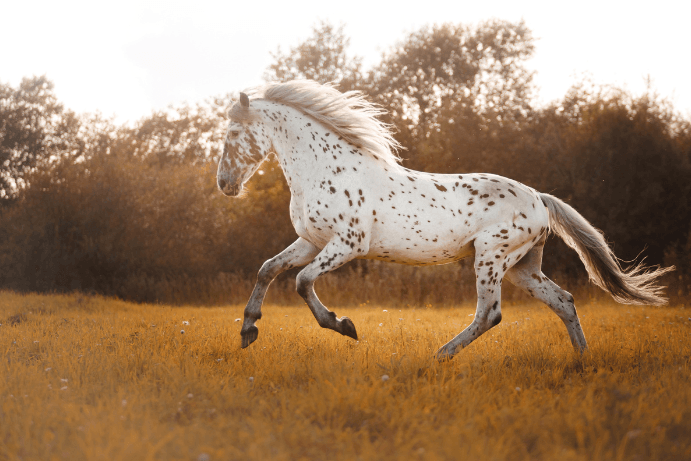Imagine the fastest horse in the polo sport is not bred, it is genetically designed. And it’s not science fiction anymore. Argentina introduced the world’s first gene-edited polo horses last week pushing the limits of genetics to create champions that could redefine the sport forever.
At the heart of this groundbreaking experiment is Kheiron Biotech, a Buenos Aires-based firm that has harnessed the power of CRISPR-Cas9 technology to create five genetically enhanced horses. These aren’t typical thoroughbreds; they are the next generation of elite athletes, carrying the precise genetic makeup of Argentina’s legendary and award-winning mare, Polo Pureza. And if everything goes according to plan, the genetically edited polo might just outrun her.
A Leap into the Future of Polo
For years, breeding top-tier polo horses has been a mix of skill, patience, and a little bit of luck. Even with the best heritage and training, there’s no guarantee—some horses inherit their parents’ speed and strength, while others don’t quite measure up. But now, CRISPR-Cas9 (Clustered Regularly Interspaced Short Palindromic) is changing the game.
This cutting-edge technology can enable scientists to edit genes with incredible precision, removing much of the guesswork. Instead of hoping for the right traits, scientists can now draft them. It’s like moving from sketching by hand to designing with a high-tech tool—ushering in a new era where the future of polo horses is clearer, smarter, and more reliable than ever before.
Gabriel Vichera, co-founder and scientific director of Kheiron, reportedly explained that the technology allowed his team to make specific cuts in the horse’s genome, enhancing muscle growth and explosive speed while preserving the other winning traits of Polo Pureza. This means the five gene-edited horses aren’t just fast but they are genetically optimized for the game.
Not Genetic Doping, Pure Science
The concept of genetically modified animals often raises eyebrows, especially in the world of competitive sports. Is this fair? Is it ethical? The Argentinian company says that its approach does not constitute genetic doping but rather a scientifically guided form of selective breeding.
Kheiron Biotech explains that CRISPR is a technology enables scientists to edit the DNA of any genome. Also, quoted that in 2005, a researcher developed Cas9 – a DNA-cutting enzyme that allowed editing in the cell’s own genome. However, there are a few difficulties with CRISPR technology and its uses in animals, this extends to humans too. But on a broader picture, this technology is contributing a lot world of polo sports at least for now.
“There is nothing artificial about this creation,” Vichera told the press. The horses have been born and raised just like any other foals, nursed by mares in a facility in San Antonio de Areco, Argentina. The only difference is their genetic blueprint, it has been fine-tuned for excellence.
What’s Next? Beyond Polo Horses
While the world watches to see if these genetically enhanced polo horses will dominate the field, Kheiron Biotech isn’t stopping there. They have bigger plans that go far beyond equestrian sports.
For pigs, the goal is medical—Kheiron is exploring ways to make their organs more compatible with human transplants. Given the global shortage of transplant organs, this could be a game-changer in medicine, offering a sustainable way to save lives.
The intention behind the genetic modification of cows addresses their adaptation to climate change. Through genetic modification, Kheiron strives to develop cows who keep shorter hair that functions well in high temperatures to assist farmers in dealing with extreme heat.
The Power and Controversy of CRISPR-Cas9
CRISPR has opened doors to possibilities once thought to be science fiction. It allows scientists to tweak the genetic code of living beings, giving rise to stronger animals, disease-resistant crops, and even the potential to eliminate hereditary illnesses in humans.
But where do we draw the line? While gene editing offers incredible benefits, it also sparks an ethical debate—should we be altering nature at such a fundamental level?
With Argentina’s gene-edited horses already making history, the discussion isn’t about what’s possible anymore, but about what’s right!
This technology allows scientists to make precise edits to DNA, opening doors to modifying plants, animals, and even humans. Imagine crops that can survive extreme weather, fruits that are bigger and tastier, or even eliminating genetic diseases in humans. The possibilities are vast, but they also come with big questions.
With such power comes responsibility. When it comes to gene editing in animals—and especially humans—there’s an ongoing debate. Are we crossing a line? Should there be limits to how much we can modify living beings?
These ethical concerns are real and can’t ignore them. But whether we like it or not, this is no longer science fiction. Gene-edited animals are already here, galloping across Argentina’s polo fields, faster and stronger than ever before.
The conversation about the future of genetic modifications isn’t coming—it has already begun.
The Beginning of a New Era
Five gene-edited horses born in late 2024 marked the beginning of a transformative period. These genetically modified polos may open up future breeding possibilities, as they demonstrate superior speed, strength, and enhanced durability.
The horses that showcase their maximum potential will redefine excellence through their record-breaking abilities. The development of these remarkable sports animals could lead to an entirely new system for breeding future elite performance animals.
Modern advancements in science threaten to replace traditional techniques for selecting and training superior candidates.

